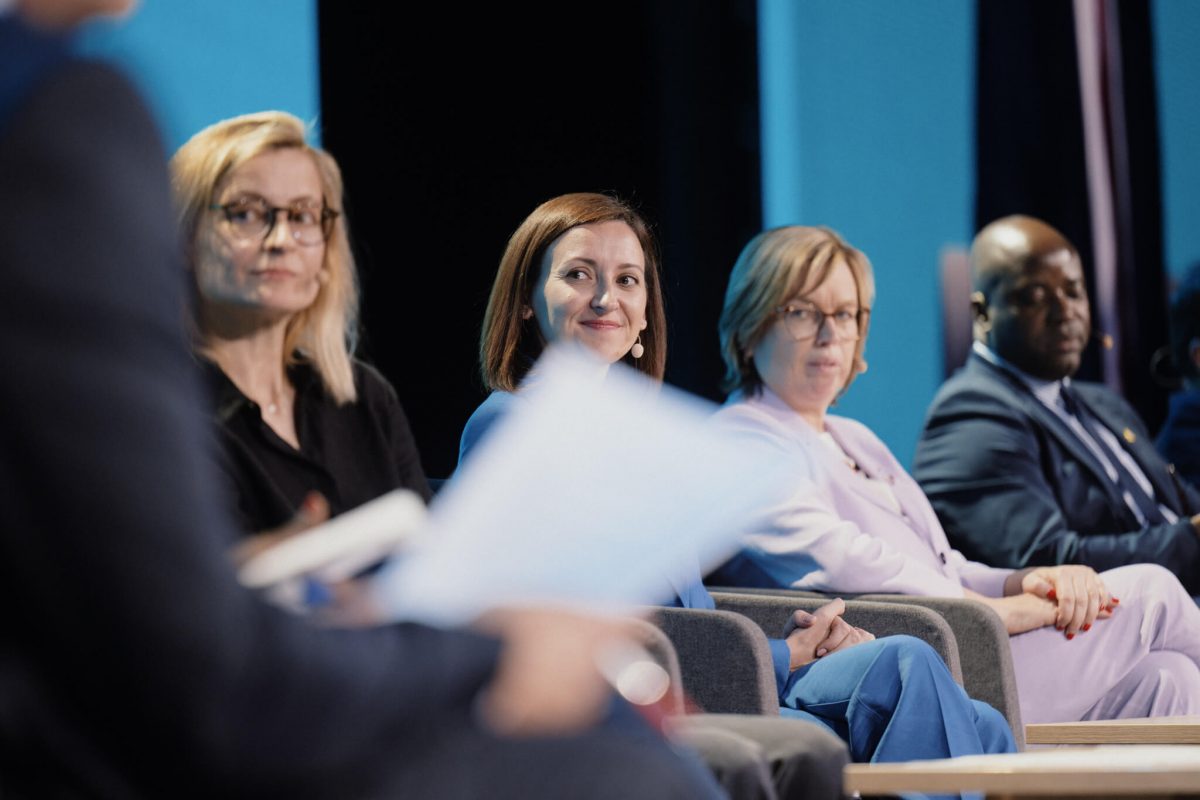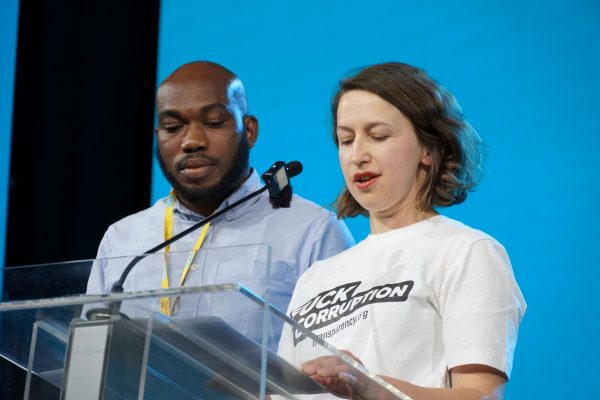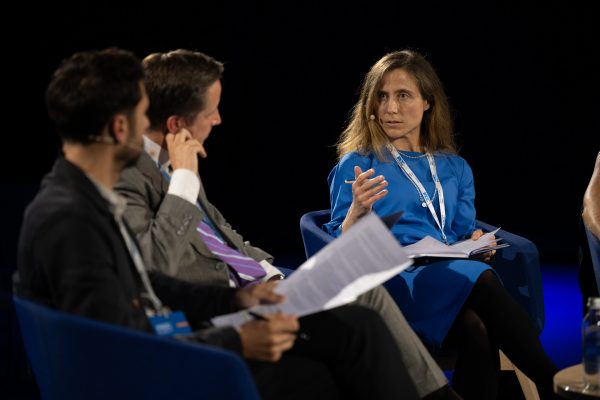Moldova is embroiled in a fierce battle against kleptocracy. In its 33 years of independence, the country has faced economic shocks, betrayal, separatism, and the rise of corrupt oligarchs to powerful positions.
This history has fostered deep mistrust among Moldovans towards their politicians and state institutions. Amidst the ongoing war in Ukraine, breaking the cycle of impunity and restoring public faith is not just important – it is crucial for Moldova’s survival.
One of the pivotal players in this fight is the country’s National Anticorruption Centre (CNA), led by Veronica Dragalin.
Speaking at the International Anti-Corruption Conference in Vilnius on 20 June, Dragalin highlighted the immense challenges her institution faces in combating corruption.
“In Moldova, we are working hard to establish a stable rule of law. We still have a lot of work to do, but we are hopeful,” she stated.
Corruption has plagued Moldova throughout its modern history. Notable examples include the 2014 embezzlement of an estimated US$1 billion (12% of the country’s GDP) from the banking system, the Russian Laundromat money laundering scheme, and the recent revelation that a top general may have been working for Russian intelligence services.
A significant turning point came with the election of pro-Western President Maia Sandu in 2020. Her administration has implemented comprehensive judiciary reforms, with a focus on revitalizing the country’s specialised anti-corruption bodies. At the forefront of this battle against graft and state capture is the CNA, now headed by Dragalin.
Dragalin, a US graduate with an award-winning prosecutorial career, said that she returned to Moldova driven by a sense of civic duty. “Having grown up in Moldova, I saw acts of corruption that were systemic and common, such as getting pulled over by police and being asked for a bribe instead of paying a ticket. This is what motivated me to become an anti-corruption prosecutor in the US and take the opportunity to come back to help my country,” she explained.
Surprisingly, Dragalin found commonalities in corruption patterns between Moldova and the US. “The similarities in the way criminals think, the methods they use to perpetrate their corruption schemes—having family members deposit cash, opening offshore companies in the names of close friends and associates,” she noted.
Both countries also face foreign meddling in politics, with Chinese nationals donating to local politicians in Los Angeles to gain building permits and Russians financing illegal campaigns in Moldova, according to Dragalin.
However, the differences lie in the scale and resources available. Moldovan prosecutors often rely on foreign partners due to the country’s small size and limited resources. “Almost all of our corrupt actors use foreign bank accounts and offshore companies. Many of our citizens have dual citizenship—Romanian, Russian, and others. We depend on other jurisdictions to gather evidence and rely on systems like Interpol to find fugitives abroad. This makes investigating complex schemes much more challenging,” Dragalin explained.
Fortunately, partnerships with international institutions like Europol and Interpol are being established and have already yielded results.
Anti-corruption efforts in Moldova occur in a climate of low public trust, where every bribery investigation is attacked as politically motivated. “The US justice system, having the history that it does, has built trust for itself. So even when it is under attack, it has been much more resilient than that of Moldova, a very young democracy where – unfortunately – we’ve had a dark past in terms of abuses and failures of the justice system,” Dragalin said.
Despite these challenges, Dragalin’s work has led to notable improvements in public trust. Between 2020 and 2022, Moldova’s ranking on Transparency International’s Corruption Perceptions Index increased by five points to 42 out of 100.
However, establishing a rule of law system is a continuous task that demands ongoing public trust. Dragalin expects civil society to help build this trust. “That means encouraging prosecutors and judges that are doing their job in really difficult circumstances, investing in those systems so that people have hope, have optimism when it comes to democracy and what it has to offer for all of us,” she urged.
Moldova’s fight against corruption is far from over. Yet, with determined leadership and international support, there is hope for a future where rule of law prevails and public trust in state institutions is restored.


